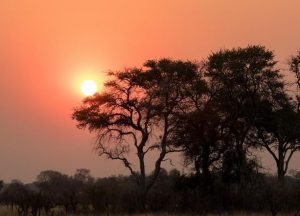According to a new report from Global Witness more than 1,700 murders of environmental activists were recorded over the past decade, an average of a killing nearly every two days.
Mining and extractive industries, logging and agribusiness were the most common drivers for a murder. The report’s authors warned the figures were likely a significant underestimate and do not capture the full scale of the problem, with the deaths often occurring in ecosystems crucial to averting the worst impacts of the climate crisis. The Report “Decade of defiance” documented predominantly across Mexico, Colombia, Nicaragua, Peru and the Philippines.
Mexico was the country with the highest recorded number of killings, with defenders killed every month, totalling 54 killings in 2021, up from 30 the previous year. Over 40% of those killed were Indigenous people, and over a third of the total were forced disappearances, including at least eight members of the Yaqui community.
Whilst Brazil and India both saw a rise in lethal attacks from 20 to 26, and from 4 to 14 respectively, both Colombia and the Philippines saw a drop in killings to 33 in 2021 from 65, and 19 from 30 in 2021 respectively. Yet overall, they remain two of the countries with the highest numbers of killings in the world since 2012.
Over three-quarters of the attacks recorded took place in Latin America. In Brazil, Peru and Venezuela, 78% of attacks took place in the Amazon.
The Report documented 10 killings in Africa. The Democratic Republic of Congo remained the country with the highest number of attacks – eight defenders were killed there in 2021. All eight of these killings were in Virunga National Park, which remains extremely dangerous for the park rangers protecting it.
The document underlines the disproportionate number of attacks against Indigenous peoples continued once again, with over 40% of all fatal attacks targeting Indigenous people, despite them only making up 5% of the world’s population.
“It’s important to picture these victims as the real people they are. It’s easier for me. I have been surrounded by land and environmental defenders all my life, and indeed I am one of them,” wrote the Indian environmentalist Dr Vandana Shiva in the report foreword.
“We are not just in a climate emergency. We are in the foothills of the sixth mass extinction, and these defenders are some of the few people standing in the way. They don’t just deserve protection for basic moral reasons. The future of our species, and our planet, depends on it,” she said.
The report noted, however, that there have been some significant victories for environmental campaigners. In South Africa last year, Indigenous communities from the Wild Coast of South Africa’s Eastern Cape won a legal victory over Shell, forcing the company to halt oil exploration in whale-breeding grounds. The ruling was upheld earlier this month.
“This is a global problem but it is almost exclusively happening in the global south,” said the report’s author Ali Hines, a campaigner at Global Witness. “Corruption and inequality are two kinds of key enabling factors for the killings. For example, in the land titling process, there can be investment deals between companies and corrupt officials. Defenders who try to seek justice are sometimes up against judges paid off with bribes. That leads on to the third factor, which is the high rates of impunity. Cases are very rarely credibly investigated, never mind perpetrators brought to justice.”
The report urges governments to create a safe civil space for environmental defenders and promote legal accountability of companies, helping to ensure zero-tolerance for violence against activists.






